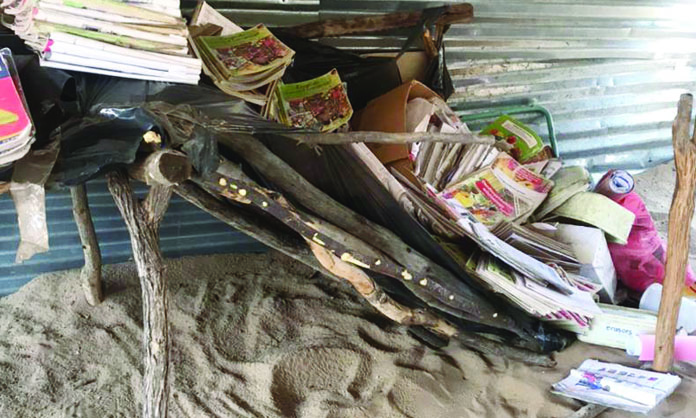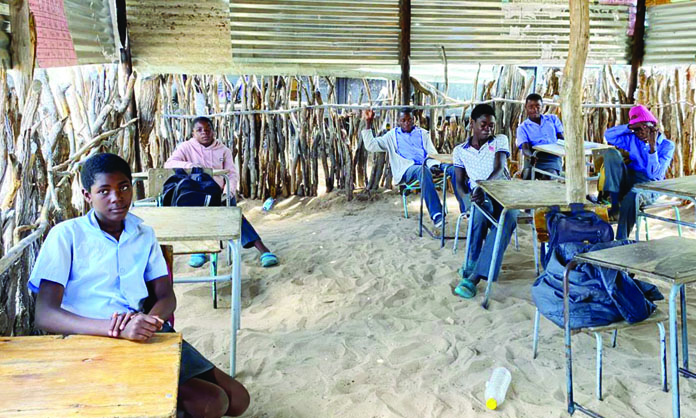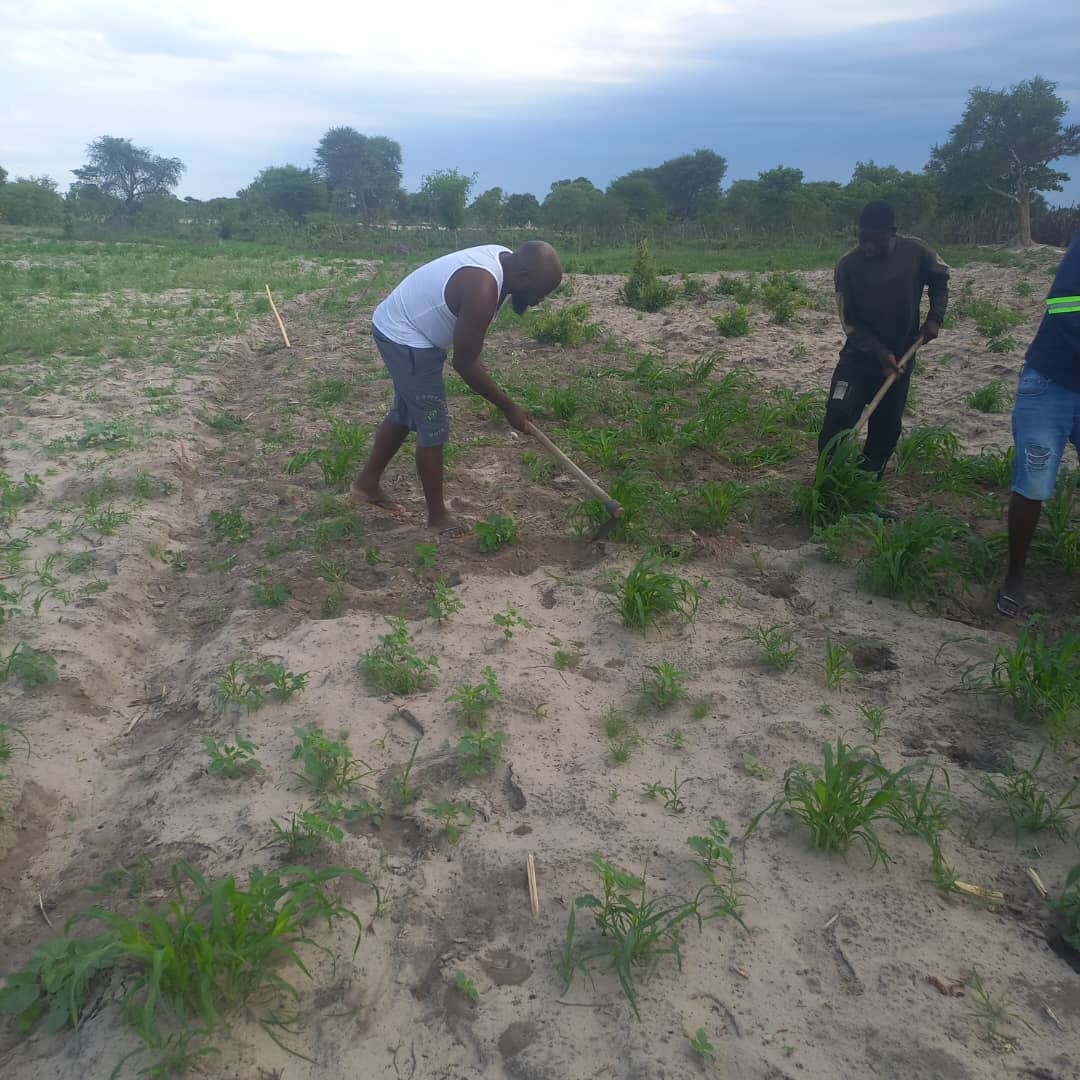A teacher at Otatashe Primary School in the Onkumbula circuit in the Oshikoto region said she was left shocked after cows broke into her ramshackle classroom and ate up her class assessment record book, pupils’ books, as well as a few textbooks.
“Right now I am planning to go and print another assessment record book, so that I can start over. I don’t even know where I will get those marks, because some pupils’ homework books have been destroyed. It’s not good,” said Saara Shipena, a Grade 2 and 3 teacher at the school.
She says a herd of cattle entered her class on Wednesday after school and destroyed her books and other school materials.
Speaking to The Namibian yesterday, she said the school has no proper classroom structures.
Teachers and pupils operate in sheds, with corrugated iron sheets on top and wooden sticks serving as a makeshift wall.
“I left the books on my desk the day before the incident, and I locked the classroom. The next day when I came to work, I found pupils cleaning up, and I saw my assessment record book torn up, textbooks torn apart and my pupils’ activity books destroyed,” Shipena said.

“I started working here in 2019, and nothing has improved at this school in terms of infrastructure and water supply. We tried looking for sponsors to assist with building materials, but none of the businesses we sent letters to responded to us,” she said.
Shipena said the teaching environment is not conducive for learning.
Yesterday, Shipena posted on social media that the government has abandoned the school.
“We teach in sheds, and our things are getting destroyed by cattle in our classes. I’m not fine.
“I teach Grade 2 and 3 combined, with 28 pupils. Honestly, we are not being considered. This is sad,” she posted on Instagram.
Shipena told The Namibian the school needs corrugated iron sheets to build more secure classrooms.
“During the rainy season we suffer the most. Rainwater runs into our classes, and we have to suspend classes until it stops.
“Scorpions and snakes pop up at any time. There is no cement. In winter it’s cold, and children are freezing, so we need help,” she said.
Despite attempts by NamWater to supply the school with water through water tankers, the water woes of Otatashe village and surrounding villages continue.
Shipena said the school has a feeding programme in place, however, pupils often do not eat at school since there is no water available.
Otatashe Primary School principal David Mushelenga said Shipena has not informed his office of the situation.
“I will consult her to find out what happened, but at the moment this is news to me,” he said yesterday.
Mushelenga confirmed that the water situation at the school has not improved.
“When NamWater brings water to villages through tankers, that is when we get access to water,” he said.
The school has 118 pupils and seven teachers.
Earlier this year, The Namibian reported that the Ministry of Education, Arts and Culture needs to build 2 837 classrooms countrywide to tackle the shortage.
The ministry said the high number of classrooms needed is caused by more pupils enrolling every year.
For the current academic year, a total of 1 248 classrooms are needed countrywide.
Based on the latest Education Management Information System statistics, 839 579 pupils are enrolled at Namibian schools countrywide.
Oshikoto education director Aletta Eises yesterday said she would follow up on the state of the school with the circuit inspector.
She said if a school is, however, found to be uneconomical, the government cannot erect permanent structures.
On Tuesday, during his midterm budget review speech, minister of finance and public enterprises Iipumbu Shiimi announced that the Ministry of Education, Arts and Culture would be allocated an additional N$129 million “to expedite the construction of classrooms countrywide”.
Ministry of Agriculture, Water and Land Reform spokesperson Jona Musheko said the ministry, in conjunction with the Environmental Investment Fund, is currently installing mini-desalination plants in the Oshikoto region.
“We will install these mini-desalination plants at about six villages this week. The project is managed by the Environmental Investment Fund. There is progress,” he said.
Stay informed with The Namibian – your source for credible journalism. Get in-depth reporting and opinions for
only N$85 a month. Invest in journalism, invest in democracy –
Subscribe Now!







